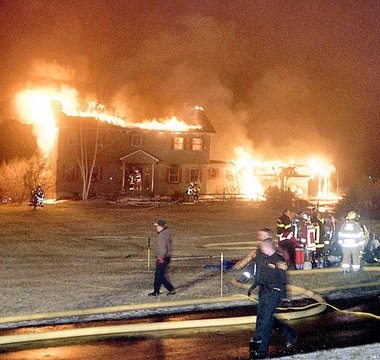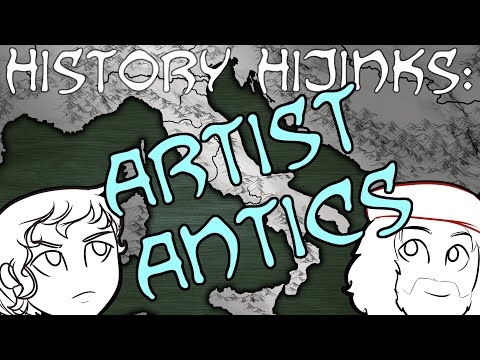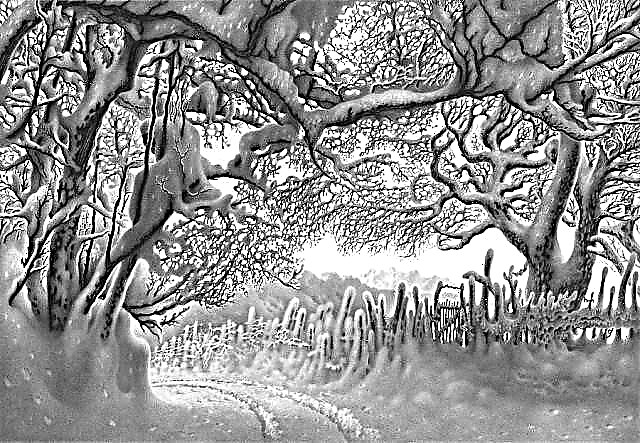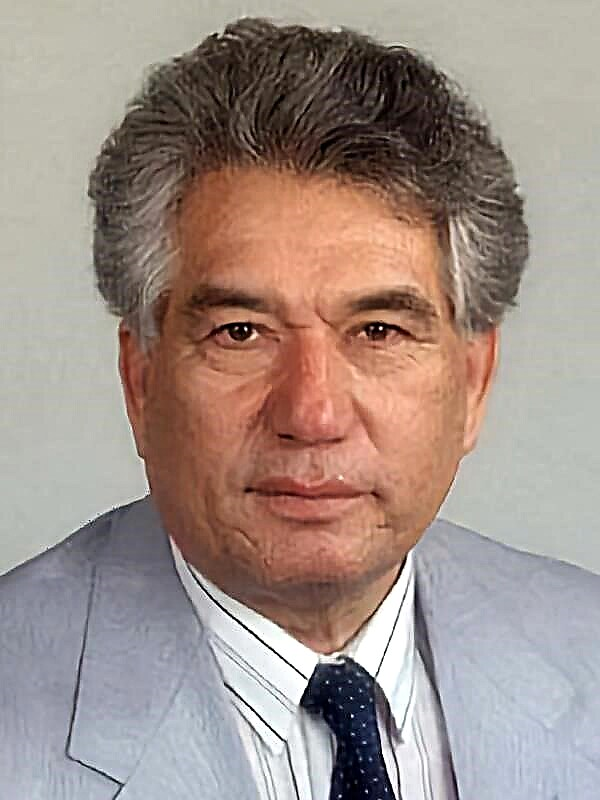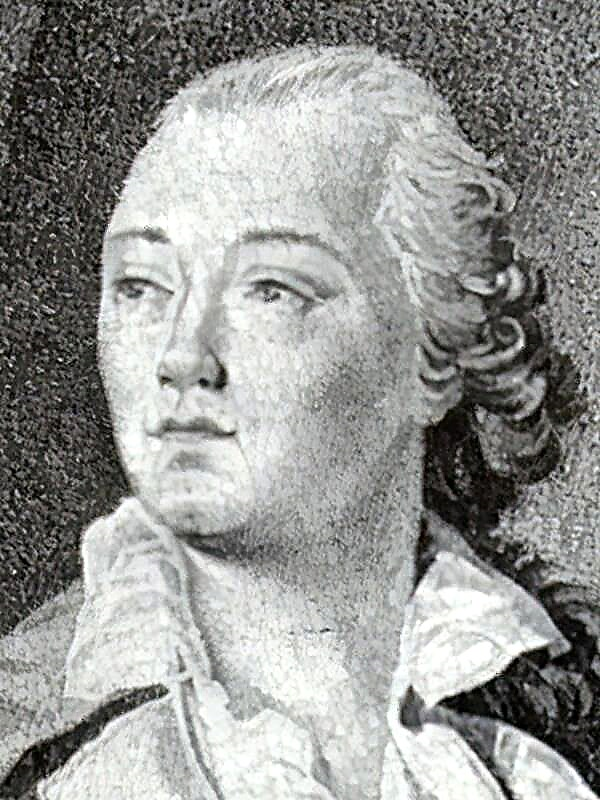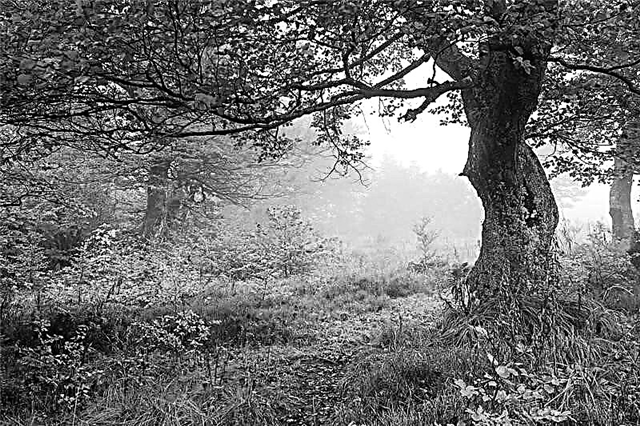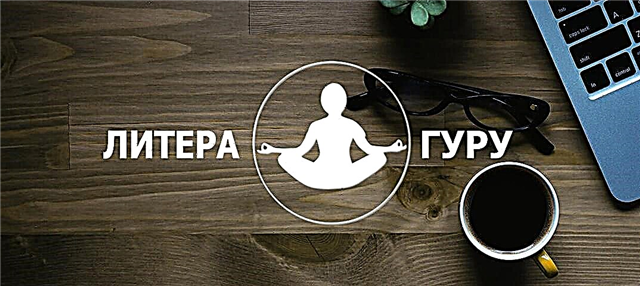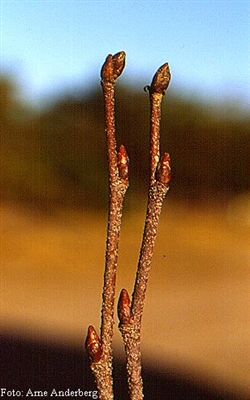The novel consists of five parts - each tells of one of the executions of the Lord that fell upon the earth, as the prophet Ezekiel predicted.
Part one - “The Parable of the Lost Brother” - tells of the second execution - hunger. The scene is a hungry Ukraine in times of collectivization; 1933. In a rural teahouse, Maria, a beggar girl, tries to beg something of Christ for the sake of, but no one gives her - except for a Jewish boy who shares unclean bread of exile with her. The villagers are outraged by the act of the stranger; the girl’s bread is taken. The boy who gave his bread is Dan, Aspid, Antichrist, brother of Christ the Messiah. Through the revelations of the prophets, he communicates with the Lord, who sent him to the earth, to Russia, since this people lied to the Lord, abandoned him - and thereby replaced the wooden yoke with the iron yoke.
The girl Maria, together with her younger brother Vasya, are returning to their starving village. The mother decides to separate the family - to throw one of the children to a stranger, just leave someone; she leaves for work in another city. Before leaving, she leads Mary and Vasya to the city; to a hungry child, a stranger serves bread again, but his mother throws out a “not ours, non-Orthodox” piece. Later, in the city, the children will once again ask the Antichrist for alms, but this time they will be stopped by a policeman - it is forbidden to beg.
Abandoned by the mother, the children fall into the receiver. They are given a guide so that with their help they can return home. On the way, the conductor rapes Mary and escapes. The children again go to the shelter; at night, the watchman tells them a tale about the "God's child" of "Jesus Christ", tortured by the Jews. Mary is taken away from the city. The girl runs away; Once alone in a snowy field, she wanders through it, crying with God's cry, from which the heart is enlightened. Maria is looking for her older sister Ksenia, she has been living in her house for about a year. Once she becomes an unnecessary witness to family scenes (her sister cheats on her husband and her lover), and she is sent back to the village. There, too, no one is happy; crying from injustice, Mary wanders around the field again; there she meets Dan, the Antichrist. When asked about the cause of the tears, the girl replies: "because the Jewish Jews killed the Son of God and he is now in heaven, and Vasya, my brother, on earth, in the city of Izum." So Isaiah's prophecy came true: "I was revealed to those who did not ask about Me, they who found Me did not seek Me."
Mary goes to Kerch, to her mother. After some time, the mother dies, Mary becomes a port prostitute. Once, hungry, she again meets Dan, he gives her unclean bread. Mary pays him with her love. Antichrist goes further; the earth and the people for lying to the Lord are destined for the second punishment - the sword. Mary, convicted of prostitution and vagrancy, gives birth to a son, Vasya, in prison from Dan. In 1936 she dies.
The second part begins with a discussion about imitation of the Lord - instinctively or through the mind. The author defends the idea that Jews are no better and no worse people; but this people is remarkable for its prophets who knew how to listen to the Lord. In “The Parable of the Agony of the Wicked,” the girl Annushka is told. She lives in Rzhev with her mother and two brothers; one of them dies through the fault of his sister. Once thieves come to Annushka; during the investigation, the girl points to an innocent man - he is sent to prison. Mothers are given a new apartment. Once Dan, the Antichrist comes to Annushka. Examining the murals on the walls (Annushka lives in a former church - because of the wallpaper on the wall the face of Christ appears), he reflects on the fact that the churchmen replaced Christ with an idol, emaciated by the Alexandrian monk; now, in the spring of 1941, this monk, in turn, was replaced by the "Assyrian bathhouse attendant" - Stalin. Above the Rzhev huts, the Antichrist has a vision of a sword - the Lord’s words come true: “Woe to the city of blood, and I will lay out a big fire. The war begins. Annushka's mother is dying; girl goes to the orphanage. Annushka, who managed to communicate with the Germans during the occupation, learned to hate the Jews. Orphanage girl Shulamith annoys her. Envious of the fact that during the evacuation a Jew came to a good adoptive mother, Annushka informs the Germans that Sulamith is non-Russian. A Jewess is killed, Annushka is sent to Germany, to work. Before her departure, Dan comes to the train and asks the girl to read aloud in Germany a sheet of paper that he gives her. Antichrist must curse the Germans, as the Lord once cursed Babylon through Jeremiah. The prophet himself cannot enter the wicked land.
One of the women who was stolen together with Annushka asks Dan to take her child, the girl Pelageya. The Germans, who noticed a Jew, are trying to kill him, but it is impossible to kill the Antichrist.
Annushka fulfills Dan’s errand - wicked Germany, who hates God and his beloved people, is cursed. Annushka herself soon dies of a fever.
The action of “The Parable of Adultery”, which tells of the third execution - lust, takes place in 1948. The Kolosov family lives in the Volga city of Bor - front-line soldier Andrei, his wife Vera and two daughters, Tasya and Ustya. A strange Jewish family lives nearby - Dan Yakovlevich and his daughter Rufina, who are completely different from a Jewess. Vera Koposova, whose relationship with her husband is very complicated (he believes that his wife was unfaithful to him during the war), having met Dan, falls in love with him. Realizing that she cannot directly seduce a Jew, she brings her daughter Tasya with him. She also falls in love with Dana, they meet. About these dates father finds out. Together with the scammer Pavlov, they are trying to kill the Antichrist, but this is not possible. Faith comes to Dan and offers her intercession in exchange for sleeping with her. Antichrist, a loving daughter, is forced to commit adultery with her mother. Rufina accidentally turned out to be a witness to their meeting, and Tasia sees everything and talks about the sin of the mother to her father. He first tries to kill his wife, then that day dies of grief. Rufina, meanwhile, flees into the forest; there, she was almost raped by the lascivious anti-Semite Pavlov; the girl is saved only by the appearance of two dipper. After the experience, Ruth realizes that she is a prophetess, and reconciles with her father, a curse cleansed from her sin.
Part Four, the basis of which is “The Parable of the Illness of the Spirit”, tells of the persecution of Jews in the early 1950s. The parable is preceded by an introduction - the author’s reflection on Russian anti-Semitism. For this spiritual illness, God sends the fourth penalty - illness, pestilence.
Two children come to Moscow, to the Ivolgin family, consisting of a Jewish art critic, his Russian wife Claudius and their son Savely, Nina and Misha, from Vitebsk. They are the nephews of Claudius; their parents were arrested on charges of Belarusian nationalism. The Orioles, people who are afraid of everything, who hide their Jewishness in every way, abandon their children. The Ivolgin family is tacitly watched by two of their apartment neighbors - a Jewish janitor Dan Yakovlevich and his daughter. In the country at this time there are massive revelations of Jewish cosmopolitans. The cowardly Ivolgin, trying to protect himself from arrest by participating in the persecution of his people, was soon arrested too. At the first interrogation, an investigator kills him.
After 1953, the widowed Claudia has a new admirer - the old man of Ilovaisky, a reasonable anti-Semite. He has been having a long debate with Dan about Russian Christianity. As an example, an old man breaks a cup: the whole, it is simple; broken, becomes complicated. Dan, the Antichrist, feels that it is impossible to argue Ilovaisky - Christianity is too distorted in the Greek and medieval interpretations. The word spoken of by the Gospel of John and Ilovaysky, in fact, only degrades the meaning.
The preface to the fifth part - “The Parable of the Broken Chalice” - is the author’s discourse on the relationship between Judaism and Christianity. The heroes of the fifth part are the children of the Antichrist from different mothers: Andrei Koposov, the son of Vera, Vasily Korobkov, the son of Mary, and Pelageya-Ruth, the prophetess, the adopted daughter of Dan. Vasily, Andrei and Savely Ivolgin study at the Literary Institute. Andrew himself comes to the Bible, comprehending its meaning - the opposite of the Christian. Once upon a time, young people converge at a fashion show in the Tretyakov Gallery; Pelagia recognizes in a militant anti-Semite Vasily the son of his father. He cursing the "Jews," makes a scandal. Having convinced himself of his resemblance to his father, a "Jew," Vasily hangs himself.
Andrei is visited by his mother, Vera Koposova. She tells him that he is Dan's son. Andrei, the “good seed,” meets his father; the assembled family quietly celebrates the Jewish religious holiday.
Being half-mad from unquenched lust, Saveliy creates two “philosophical men” in an alchemical flask. In conversations with them, he learns the answers to the most important questions - about the paths to God, about truth, good and evil, about the rational justification of faith in God. He finally falls into madness, and he was taken to a mental hospital.
Pelagia, living a virgin, feels that the time has come to become a woman. Following the example of Lot's daughters, she seduces her father, the Antichrist. He, feeling that the plan of the Lord is being accomplished, rapes her while intoxicated. The prophetess Pelagia conceives a son from the Antichrist. He who has done everything destined for him on earth dies. Before his death, he instructs his son Andrei, who goes to God in the most difficult way - through the mind, through doubt.
The son of Pelagia and the Antichrist, also Dan, listens as his mother reads to him the speeches of the prophet Deuteronomy, long before Christ expressed the same ideas.
Andrei, Pelagia with his son, and Saveliy, healed, go out of town to the forest. Looking at the harsh winter nature, they comprehend the essence of the antagonism of Christ and the Antichrist: the first is the protector of sinners and persecutors, the second patronizes the victims of persecution. The reckoning for persecution is approaching, the fifth worst execution - thirst according to the word of the Lord, from which Christ will not save.

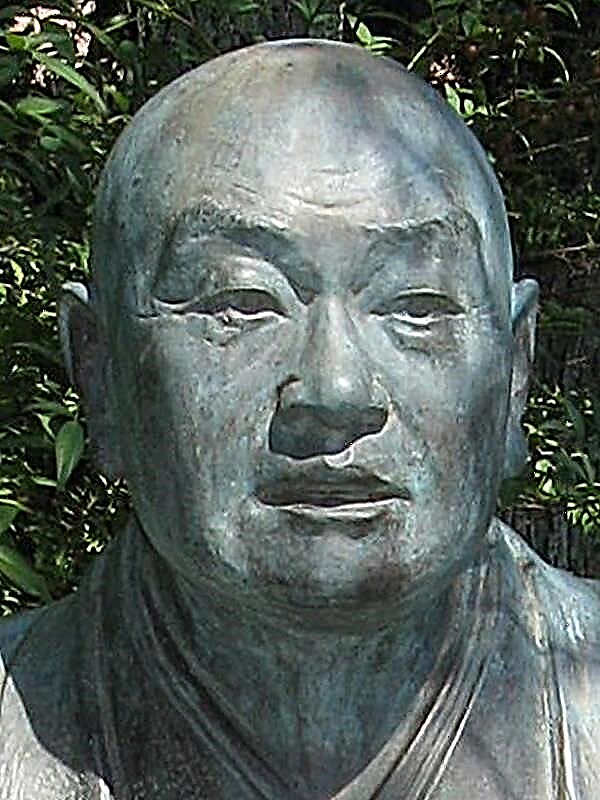

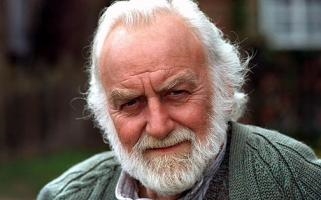
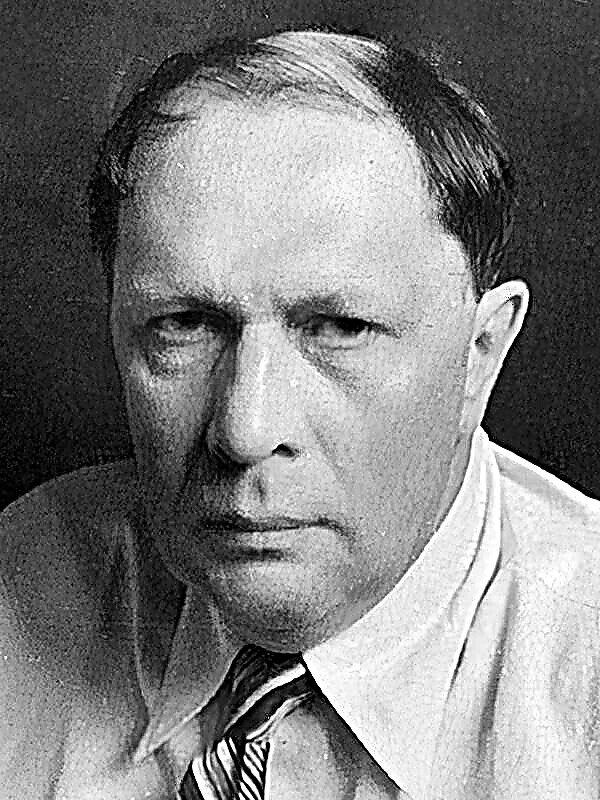 Golden Key
Golden Key